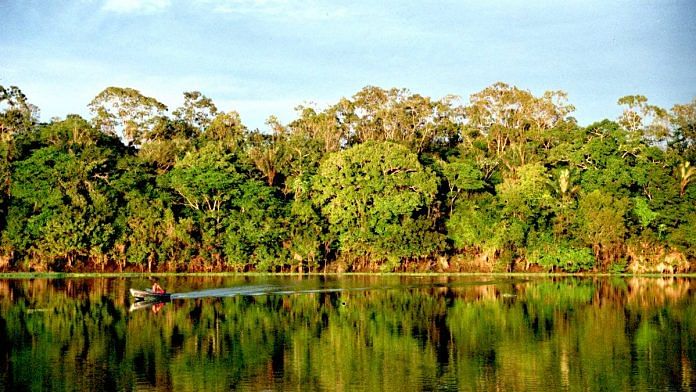New Delhi: Policymakers can expect the second part of the Intergovernmental Panel on Climate Change (IPCC) report to take a more solutions-based approach compared to previous iterations of the report, co-chairs of the Working Group II — the group that authored the report — said Thursday.
The Working Group II of the IPCC’s sixth Assessment Report (AR6) focuses on climate change impacts, adaptation, and vulnerability. It takes off from the report of the Working Group I which was released in August last year and focussed on the past and future changes in the climate system.
The AR6 Working Group II report is due to be released on 28 February.
“As usual we’ve looked at the aspects of risks that we’re exposed to as a result of the physical changes in the climate. We’ve turned that down to focus very strongly on the issue of solutions,” said Dr Debra Roberts, co-chair of the Working Group II.
The report examines the hard and soft limits that ecosystems, biodiversity, and societies face in terms of their adaptability to climate change, and focuses on how interconnected these systems are to one another.
“Adaptation and mitigation need to go together, they need to really join forces in terms of doing something about climate and climate change, for a sustainable future,” said Dr Hans-Otto Pörtner, the other co-chair of the report, adding, “Providing motivation to take action is part of the report.”
Also read: Green bonds, push for indigenous solar panels, EVs: Spotlight on climate change in Budget 2022
The limits of adaptability
Some ecosystems will reach their hard limits even if global warming is limited to 1.5 degrees above pre-industrial levels, the co-chairs of the report warned.
“The projections are that we are going to lose 70 to 90 per cent of the surface coral reefs cover with global warming at 1.5 degrees. That goes up to 99 per cent in the projections with a two degree rise or so,” Pörtner said.
Pörtner also warned that a warming climate is resulting in tropical forests, such as in the Amazon, being less able to bind carbon dioxide, which is causing a “dilemma”, because “at the same time, the world is turning around and speculating about using this service to dump part of the emissions into those systems”.
The report will also look at how feasible adaptability solutions are for various regions, keeping into account the vulnerability of various species, including humans, in the face of climate change.
“In this assessment report there is a very strong focus on cities, urban areas, and their connection to rural areas,” said Dr Roberts, adding, “In many cases the action will boil down into specific geographies where people live and work, and given that the majority of people now live and work in cities, I think that focus on urban areas is really critical.”
The first IPCC report released in August last year warned that climate change was now a “code red for humanity”, and that unless carbon emissions were cut immediately, global warming will exceed the 1.5 degrees above pre-industrial levels limit, leading to irreversible changes to our climate.
The third part of the IPCC report, by the Working Group III, will deal with climate mitigation measures and is likely to be released by the end of March.
(Edited by Poulomi Banerjee)
Also read: Rising ‘heatwaves’ in Indian Ocean could hit monsoon, says pioneering study by Pune team



